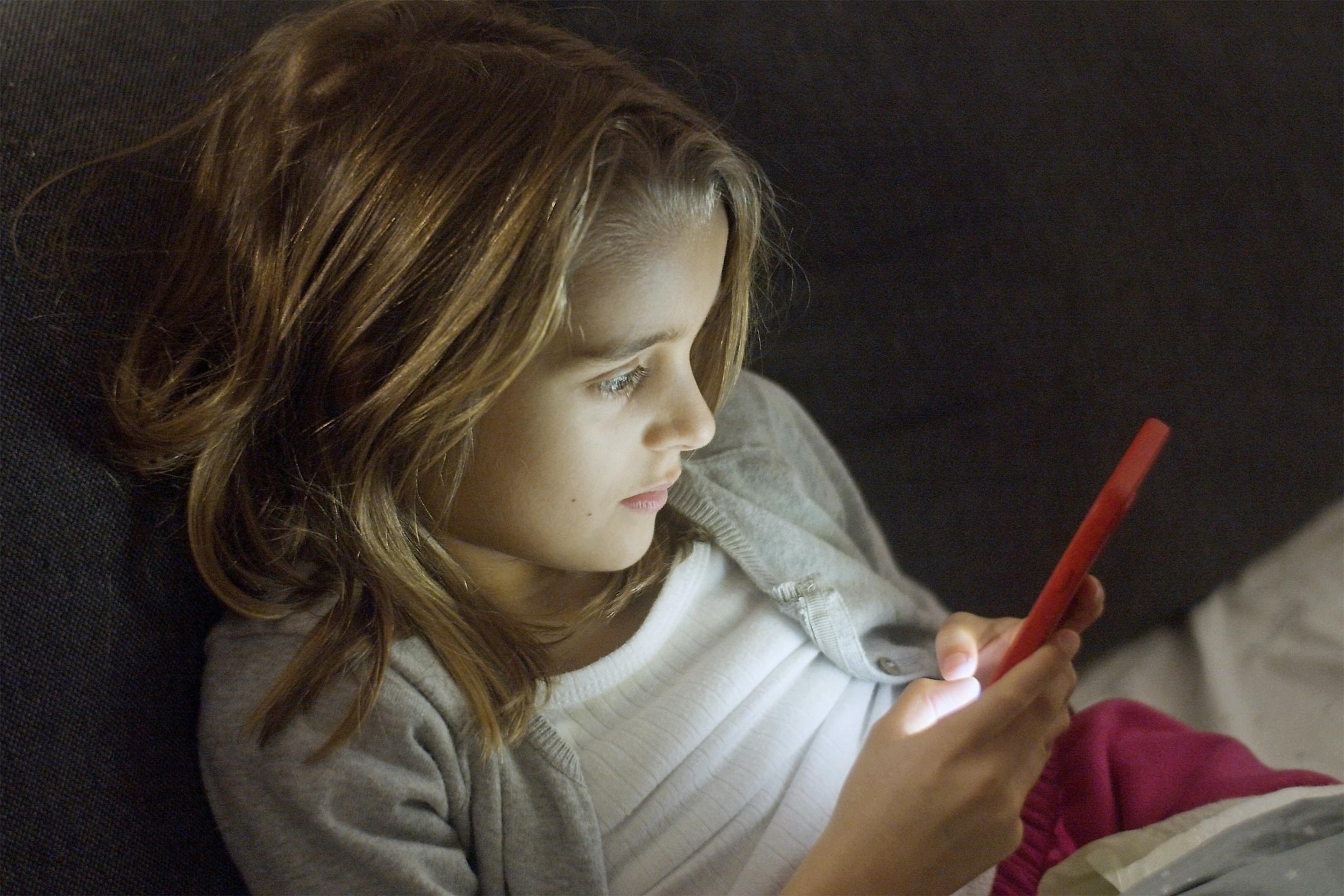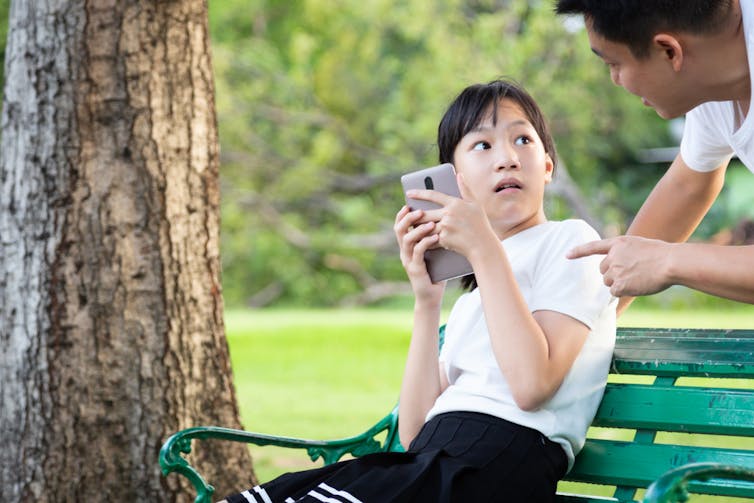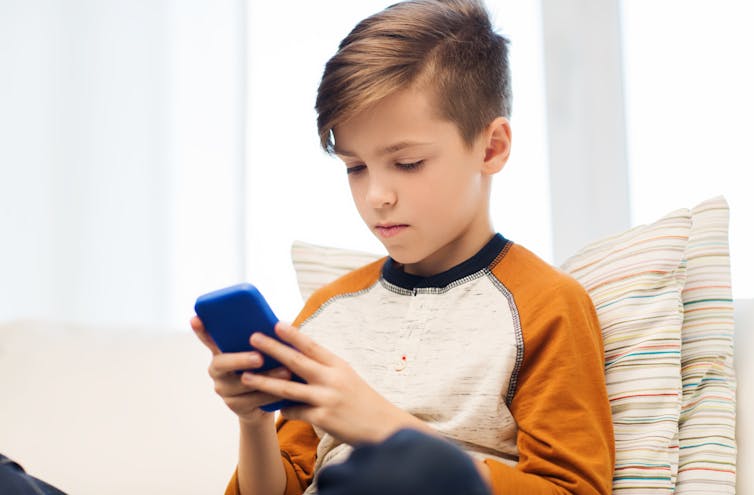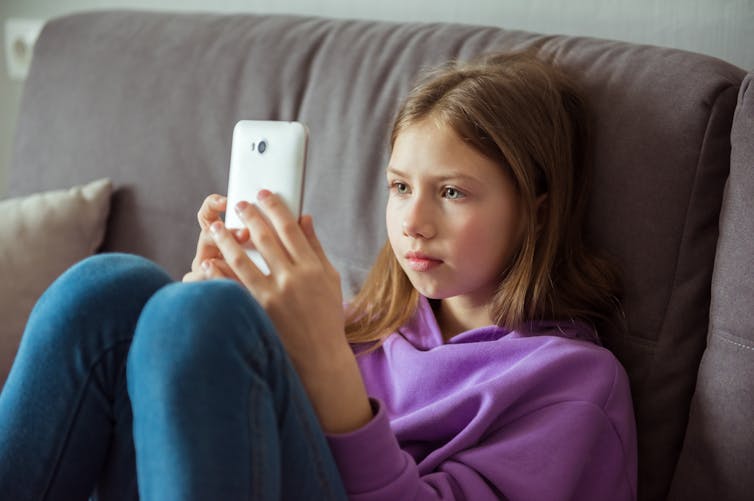
07 Mar Should you be checking your kid’s phone?
How to know when your child is ready for ‘phone privacy’, writes Joanne Orlando
Smartphone ownership among younger children is increasing rapidly. Many primary school children now own smartphones, and they have become the norm in high school.
Parents of younger children may occasionally (or routinely) look at their child’s phone to check it’s being used responsibly and safely.
But as children mature into teens, parental inspections will likely feel like an invasion of privacy. Many would not ask for a high schooler’s diary, yet phones hold even more personal information.
So, what do parents need to consider when making the “phone rules” for their children as they get older?

CGN089/Shutterstock
Early smartphone ownership
Parents get their younger children’s phones for many reasons. Some feel it will help keep kids safe when, for example, travelling on their own to and from school. Others have bought one after intense pressure from their child or worry their child will be left out socially if all their friends have a phone.
In my own research with parents, some also tell me they are reluctant to let their child use the parents’ phone for fear of risking important work files or information stored on the phone.
But many parents also worry getting a phone early might encourage phone addiction or that a child might be accessing adult content.
Parental guidance for this age group tends to focus on safety, which usually includes checking the child’s phone activity (with or without the child’s knowledge), restricting access through passwords or time limits.
Parents understandably want their children to be safe. Monitoring may be part of this, but it’s not the whole story. Most important is our role in equipping children to make good, independent and responsible decisions with their phones.
This means teaching children a broader set of skills about how to use phones safely and in a way that maximises the potential for learning, connection and self-expression.
Education and open dialogue about phone safety should begin the day your child gets their phone and continue as they grow.
The focus should be on problem-solving together and respectfully. This is what will empower them to self-regulate appropriately as they grow.

Ground Picture/Shutterstock
A phased approach: laying the groundwork early
In the first year of a younger child owning a phone, the focus should be on safety.
This may include controls, restrictions and monitoring, but does not necessarily need to include phone checking. Establishing the rules on safety and wellbeing for using the phone is key.
This means talking to your children about how and when they use their phones, why they shouldn’t answer unknown texts and calls, beware of giving out personal information online, and about being kind online. Let your children know they can always talk to you if they have a weird or bad experience online.
Parents should also focus on bigger picture safety and digital habits education. This can include, for example:
- reviewing privacy and app settings together
- understanding screen time features and how to use them
- learning how routines such as reaching for the phone when you wake can have a negative impact.
Look for quality apps together that your child may enjoy or benefit from, such as productivity apps, creative or problem-solving games, music or science-based games or other apps that will help develop their interests and life skills.
Trial and test apps or games together with your child to see how they work.

Iren_Geo/Shutterstock
Adapting the approach as children mature
As children mature, parental guidance also needs to change alongside it.
After about 12 months of the child’s phone ownership (give or take), checking phones needs to fade, and ongoing open communication needs to become the mainstay.
At this older stage, parents should have frequent, open discussions with their children about online safety, respect and responsibility. Ask your child questions about their phone experiences and always encourage them to ask for help in difficult situations.
Parents may also trial new ways of using the phone or certain apps together with their child. For example, the child and parent can use the screentime feature to discuss, and be aware of, their developing phone habits. It may also include learning to use the camera and its features well or trying new apps (such as a creative drawing app) that allow them to explore a new interest.
Help your child work out which habits work for them and which ones seem to cause stress. For example, if your child is on a WhatsApp group with friends and classmates, is that causing stress or worry? Talk to them about how they can handle it if they or a classmate are being talked about in the group chat.
The risk of routinely checking a teen’s phone is that it may end up fostering mistrust between parent and child. Regular conversations about phone and online safety and discussing news articles on the topic are two ways of keeping safety front and centre. This helps promote good communication and trust.
Alleviating fear and worry
Taking a phased approach helps your child develop the skills and values they need to be able to make good, independent decisions.
Some children may need more or less than 12 months in the stricter hands-on initial phase. Much depends on their maturity, their home environment and their social world.
But taking a broader and adaptable approach will also help a parent better understand their child as a phone user.
This can help alleviate the fear and worry many parents have about phones and kids.![]()
Joanne Orlando, Researcher: Digital Literacy and Digital Wellbeing, Western Sydney University
This article is republished from The Conversation under a Creative Commons license. Read the original article.


